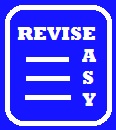Level 3 Diploma Early Years Educator
Play, development and learning for school readiness
Play is a universal form of entertainment that children can engage with at all ages. It is the perfect medium through which children
gain skills, knowledge and sheer enjoyment that stimulate all their senses.
Play enable children to express their thoughts and ideas, use their imagination and manifest their feelings. Through the use of toys and equipment,
children learn about concepts such as numbers, shapes, sizes, volumes, weights and measurments.
Children also learn about life by looking and imitating behaviour of other children and adults; this is a form of role play, for example a child might pretend to be mum to their doll, or
a policeman telling people what to do in the home. As well as role play, this unit will explore other types of play that are interactive and productive.
In brief, this unit will be structured to cover the following topics in relation to play:
- Understanding the value of play in early years.
- Applying child development theories and current frameworks to plan and design types of play.
- Getting children ready for school and recognising their needs.
- Planning and supporting children with additional needs.
- Encourging development of mathematical and literacy skills through play.
- Promoting personal, social and emotional development of children.
- Promoting cognitive and physical development of children.
- Developing speech, language and communication of children.
- Supporting children with additional needs.
- Using observation, assessment and planning to promote development.
- Using longitudinal studies and research to support childrens needs.
